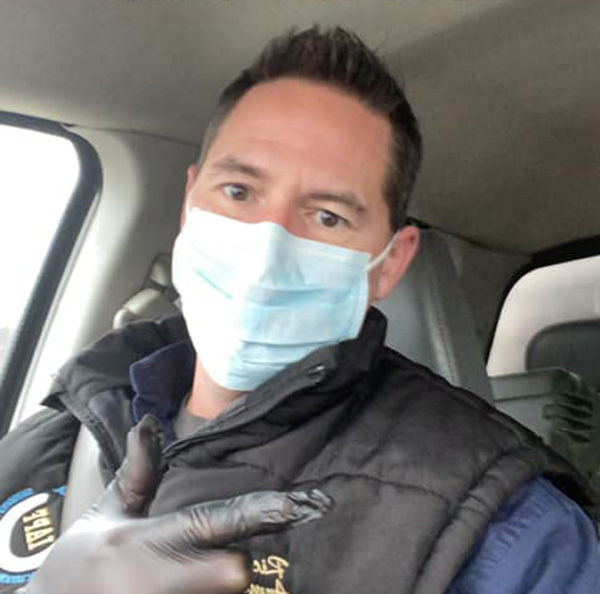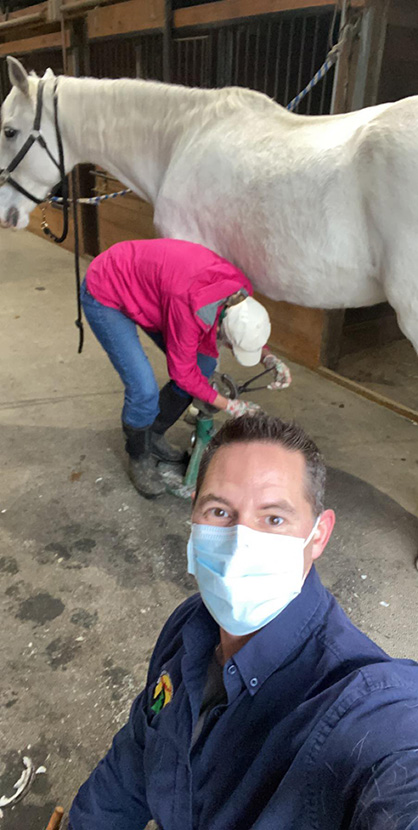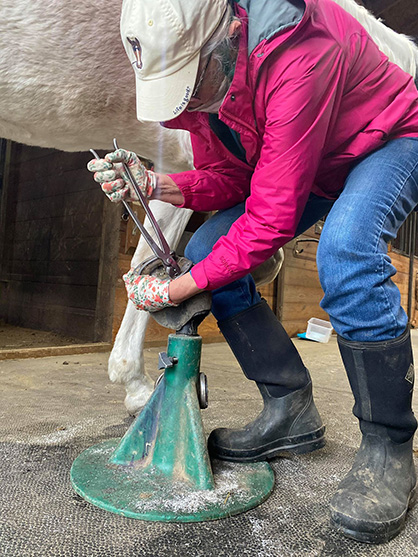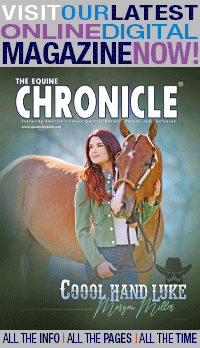Keep On Keeping On

By: Brittany Bevis
While most of the country has been shut down due to the COVID-19 pandemic, there are some jobs considered to be essential, such as those in healthcare, grocery stores, post offices, and government organizations. For people who have jobs in one of these fields, that means it’s work as usual.
One of these individuals is Richard Armentrout, a professional farrier who has been accredited through the American Association of Professional Farriers. Richard is also categorized as a journeyman farrier and regularly travels back and forth from Texas to Ohio to shoe horses. He occasionally receives calls for corrective work in states like Pennsylvania, New York, and Indiana, and has been shoeing horses for 16 years. In 2018, he had the honor of being named one of the official farriers for the World Equestrian Games.
At this time, Homeland Security has indicated that specific categories of agricultural workers are considered to be essential for the health and welfare of animals. The job of farrier is one such vocation. Other jobs listed as essential under NACIS code 115210 include the boarding of horses, training of horses (except racehorses), stud services, and semen collection.
“Since farriery is considered to be essential, my work, so far, has not been affected,” Richard says. “However, I have temporarily ceased having interns travel with me during this time.”
But how does Richard travel across numerous states and interact with different horse owners while staying safe? He’s following many of the same precautions that are currently in place for the rest of us, like good hygiene and social distancing.

Richard shows a client how to pull a shoe in case of an emergency.
“We’re limiting all personal contact with people and practicing social distancing,” he says. “When needed, we wear the N95 masks and surgical gloves. We wash our hands with NYSDEC, EPA, and CDC approved products in between all customers, after handling credit cards, checks or cash, and after touching any items like gas pump handles, door and barn handles, etc.”
These are steps that Richard is taking, not only for his own safety, but for that of his customers as well. “We ask that anyone who has any illness or symptoms of acute respiratory illness to stay home and not come to the barn. We also ask for a healthy person to hold each horse.”
“Older adults and people who have severe, underlying, chronic, medical conditions, like heart or lung disease or diabetes, seem to be at higher risk for developing more serious complications from the COVID-19 illness. Therefore, they should make sure they aren’t at the barn, or wearing Personal Protection Equipment (PPE).”
 Richard notes that his clients have been very accommodating and many have shown up to the barn wearing masks of their own. The majority of the barns he visits have already implemented a limited visitation policy and are restricting general visits.
Richard notes that his clients have been very accommodating and many have shown up to the barn wearing masks of their own. The majority of the barns he visits have already implemented a limited visitation policy and are restricting general visits.
Do you have a job in the horse industry and are finding new ways to adjust to the current health crisis? What does a day in the life look like for a veterinarian, breeding manager, horse trainer, or hay grower? Are you an amateur or youth competitor who works in human healthcare? If you have a story to tell, email B.Bevis@EquineChronicle.com.










